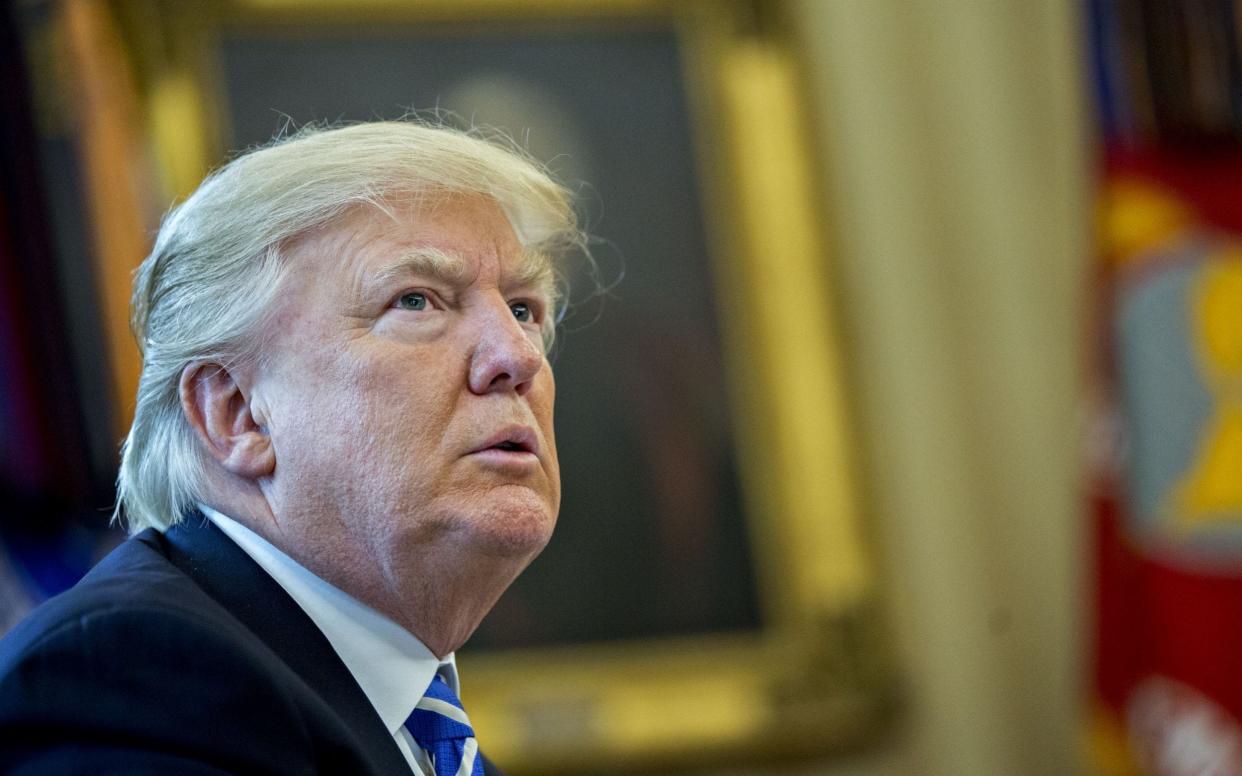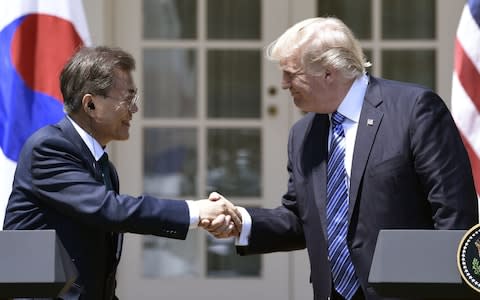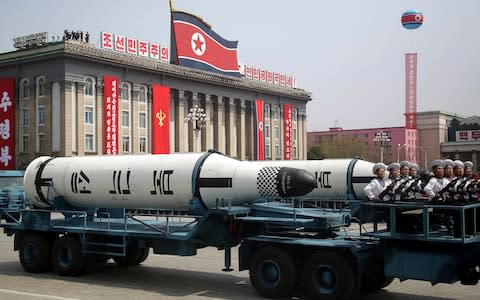North Korea vows ‘thousand-fold' revenge on US over sanctions as Trump warns of 'grave and growing' threat

North Korea vowed to unleash “thousands-fold” revenge on the United States in response to sweeping sanctions against the nuclear-armed regime.
Pyongyang also promised to continue its military build-up, despite the harsh package of restrictions on the North Korean economy that were agreed by the UN on Saturday.
The warning came after US president Donald Trump said he was “very happy and impressed” by the unanimous approval at the UN for the sanctions.
Mr Trump expressed his satisfaction in a Tweet after he spoke with the president of South Korea about the “grave and growing” threat of North Korea, the White House said.
Just completed call with President Moon of South Korea. Very happy and impressed with 15-0 United Nations vote on North Korea sanctions.
— Donald J. Trump (@realDonaldTrump) August 7, 2017
The North Korean government said in a statement that the sanctions were a "violent infringement of its sovereignty" drawn up by a "heinous U.S. plot to isolate and stifle" the country.
"It's a wild idea to think the DPRK will be shaken and change its position due to this kind of new sanctions formulated by hostile forces," said the statement, which was published by the North's official Korean Central News Agency (KCNA).
The North said it will take an "action of justice," without elaborating.
China’s foreign minister warned on Sunday that the sanctions – which could slash by a third Pyongyang’s $3 billion annual export revenue – would result in the North Korean nuclear issue entering “a very critical phase.”
And Chinese state media on Monday said that the US needs to rein in its “moral arrogance” over North Korea following the measures.
But Mr Trump continued to highlight the rising threat of Pyongyang in his call with his South Korean counterpart, according to a statement from the White House.

"The two leaders affirmed that North Korea poses a grave and growing direct threat to the United States, South Korea, and Japan, as well as to most countries around the world," the statement said.
"The leaders committed to fully implement all relevant resolutions and to urge the international community to do so as well."
Mr Moon has been taking more pragmatic approach towards North Korea than his predecessors, and has called for negotiations between the two countries.
North Korea’s foreign minister Ri Yong-Ho told his South Korean counterpart, Kang Kyung-Wha, that the offer “lacks sincerity”, South Korea’s Yonhap news agency reported.
By me.....Analysis: Why China will never ditch historic ally North Korea for Donald Trump https://t.co/c7LpDqKAvM via @telegraphnews
— Neil Connor (@neilaconnor) June 22, 2017
The pair met on the sidelines of a meeting of the ASEAN Regional Forum in Manila on Sunday.
Rex Tillerson, the US secretary of state, raised the prospect of Washington holding dialogue with North Korean officials in comments he made at the forum.
"The best signal that North Korea could send that they're prepared to talk would be to stop these missile launches,” he said.
Kim Jong-un’s regime rattled Washington in July with two intercontinental ballistic missiles (ICBM) tests. Some experts believe the US mainland is now in range of a North Korean military strike.
The sanctions will ban North Korean exports of coal, iron, iron ore, lead, lead ore and seafood and prohibit countries from hiring additional North Korean labourers.

China’s People’s Daily newspaper, the official mouthpiece of the ruling Communist Party, warned that the sanctions could only be effective if they were targeted.
"To the greatest possible extent sanctions have to avoid causing negative impact for ordinary people and to third countries, and avoid bringing disaster to the country in question's normal and legal trade and business exchanges with the outside world," it wrote in a front page commentary on its overseas edition.
"A precision blow is the essential part of sanctions."
The Global Times, meanwhile, was more direct in its editorial, which was titled: “US needs to curb moral arrogance over North Korea.”
“The US should aim for peace and co-existence rather than geopolitical dominance,” the influential newspaper said.

